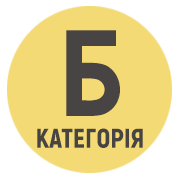THE TOPIC OF WAR AND MILITARY SECRETS IN THE ADMINISTRATIVE DOCUMENTATION OF SOVIET CENSORSHIP BODIES (1920S–1940S)
DOI:
https://doi.org/10.32782/cusu-hist-2024-spec-4Keywords:
archival sources, military secret, state secret, directives, World War II, ideological control, Soviet censorshipAbstract
The study aims to highlight the peculiarities of military secret protection and the reflection of military topics in the materials of Soviet bodies that performed the function of political control over information flows during the 1920s–1940s. To achieve the set goal, the method of source analysis, as well as historical-genetic, problemchronological, retrospective and analytical methods, was applied. It has been proven that censorship was one of the main means of political and ideological control in the USSR. It has been found that the regulatory framework that the censors used in their work was quite broad, but the most important were the special lists of topics prohibited for publication, the content of which indicates the political nature of Soviet censorship as a whole. The content and approaches to organizing lists of information that were not subject to publication have been considered. It has been proven that the list of secrets was developed by state structures under the party leadership. The years of World War II are noted as a special period in the history of Soviet censorship because the protection of state and military secrets became extremely important in wartime conditions. The analysis of Holovlit's orders, which supplemented and clarified the content of the "List of Information Constituting a Military and State Secret for Wartime", made it possible to trace the mechanisms of dosing and coverage of information about events at the front and in the rear in the appropriate context. It has been established that, under the party leadership, the system was engaged in ensuring the protection of military secrets and concealing the scale of military disasters and miscalculations of the Soviet military command. After the end of the war, Soviet censorship institutions took an active part in creating the myth of the "Great Patriotic War". Archival materials confirm that literature that contradicted Stalin's assessment of the war was removed from libraries. The removal of "unwanted" literature was part of instilling Stalin's military doctrine and preparing the ground for mythologizing the events of the German-Soviet War and World War II in the USSR.
References
Батулин П., 2012. Перечни военной цензуры 1912–1923 гг. Ленинградский юридический журнал. Серия: История и археология. № 4. 152–165.
Ворожко В., 2015. Становлення та розвиток системи захисту державних секретів у радянській Україні (1919–1954 рр.): дис. канд. іст. наук. Переяслав-Хмельницький.
Зеленов М., 2012. Военная и государственная тайна в РСФСР и СССР и их правовое обеспечение (1917–1991 гг.). Ленинградский юридический журнал. Серия: История и археология. № 1. 143–159.
Куренков Г., 2019. Защита военной и государственной тайны в первый период Великой Отечественной войны. Ученные записки Петрозаводского государственного университета. № 4 (181). 92–99.
Литвиненко В., 2014. Огороднік В. Відділи військової цензури та політичного контролю НКВС–НКДБ СРСР у Червоній армії та Військово-морському флоті (кін. 1930-х – березень 1946 рр.). З архівів ВУЧК–ГПУ–НКВД–КГБ. № 1 (42). Київ. 96–343.
Москальчук К., 2021. Відображення Уманської битви 1941 року в радянській військовій мемуаристиці. Вчені записки ТНУ імені В.І. Вернадського. Серія: Історичні науки. Том 32 (71). № 2. Київ. 169–176.
Москальчук К., 2021. Журнали бойових дій як джерело вивчення оборонних боїв 6-ї та 12-ї армій влітку 1941 р. Південний архів (історичні науки). № 35. Херсон. 31–35.
Примаченко Я., 2022. Якби не Україна – не було б Перемоги. Що саме Росія бреше про Другу світову? Локальна історія. Київ. [Електронний ресурс]: Режим доступу: https://localhistory.org.ua/texts/statti/rosiia-breshe-pro-drugu-svitovu-bo-bez-ukrayini-ne-peremogla-b/ [15.07.2024].
Романенко Т., 2013. Радянська преса в Українській РСР на початку Другої світової війни та в роки нацистської окупації (1939 – перша половина 1943 рр.). Вісник ЛНУ імені Тараса Шевченка. № 1 (260), Ч. IІ. 133–143.
Сегеда П., 2011. Радянська військова преса на території України в роки Другої світової війни. Гілея: науковий вісник. Збірник наукових праць. Випуск 44 (№ 2). Київ. 156–162.
Смиловицкий Л., 2015. Цензура в БССР: послевоенные годы, 1944– 1956. Иерусалим.
Сосін О. Державна таємниця. Енциклопедія Сучасної України. Т. 7. Київ. [Електронний ресурс]: Режим доступу: https://esu.com.ua/article-26141 [25.06.2024].
Федотова О., 2021. Діяльність органів цензури УРСР зі збереження державної таємниці в пресі у ІІ половині 1940-х рр. Вчені записки ТНУ імені В.І. Вернадського. Серія: Історичні науки. Том 32 (71). № 3. Київ. 142–148.
Чорний О., 2023. Битва за Дніпро на сторінках закритих радянських видань з історії німецько-радянської війни. Літопис Волині. Всеукраїнський науковий часопис. Чис. 28. Луцьк. 179–189.
Чорний О., 2023. Битва за Дніпро: політико-ідеологічна складова в історіографії проблеми. Вчені записки ТНУ імені В.І. Вернадського. Серія: Історичні науки. Том 34 (73). № 1. Київ. 271–280.








